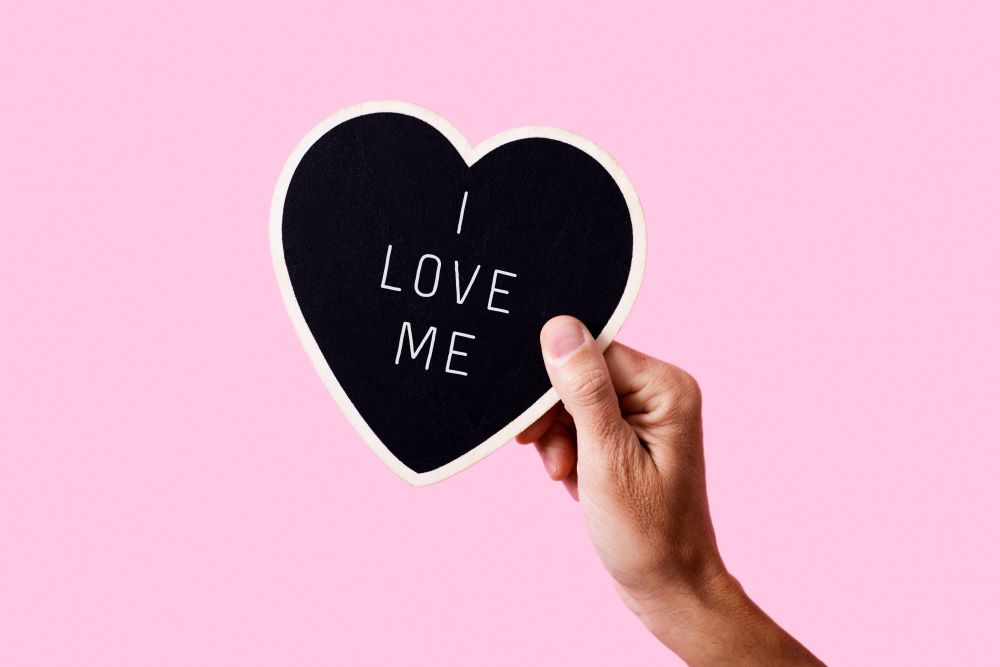¿Cuál es tu estado de relación contigo mismo?
Es la época del año en la que Cupido libera un arsenal de flechas dirigidas a nuestros corazones, enamorándonos de la idea de compartir un vínculo cercano con una pareja. Con tanto enfoque en nuestras relaciones románticas, ¿te has tomado el tiempo para concentrarte en tu relación más importante, la que tienes contigo mismo?
Tu relación contigo mismo es para siempre
Tómate un momento para imaginar que estás en una relación con alguien a quien no amas, que no crees que sea lo suficientemente bueno y que consideras inútil. Ahora imagina que esta relación es una en la que estarás activamente durante toda tu vida. ¿Cómo afectaría esto lo que piensas, cómo te sientes y lo que haces en el día a día?
Tus relaciones con los demás son temporales: te distancias, te alejas y finalmente falleces, pero tu relación contigo mismo está garantizada todos los días. No hay rupturas, separaciones ni ghosting: ¡estás contigo a largo plazo! Tu relación contigo mismo es una de las más importantes. Como cualquier relación, requiere trabajo. Practicar el amor propio ayuda a que esta relación florezca.
¿Qué significa «amor propio»?
El amor propio es la aceptación de nosotros mismos por lo que realmente somos: todos nuestros defectos, fracasos, fortalezas y talentos.
Aceptarte a ti mismo no significa que estés de acuerdo con todos los aspectos de ti mismo y dejes de esforzarte por mejorar, sino que eres capaz de reconocer tus debilidades sin vergüenza ni juicio.
Cuando abrazas cada faceta de tu ser, reconoces que posees un valor inherente que no puede ser empañado o quitado. Esto te permite mantenerte constantemente fuerte y seguro de ti mismo a través de los impredecibles altibajos de la vida.
Por el contrario, si derivas tu autoestima de los logros externos o de los elogios de los demás, te colocas en una montaña rusa. Te quedas continuamente persiguiendo los máximos temporales de los cumplidos y el éxito y cayendo en picado a nuevos mínimos cuando inevitablemente cometes errores. Tu autoestima está ligada y se tambalea en el mito del perfeccionismo.
Dar forma a tu autoimagen
A medida que creces, tu autoimagen se moldea a partir de tus experiencias y relaciones con tus padres, compañeros y otras personas. Comienzas a aprender quién eres al usar la forma en que los demás te tratan e interactúan contigo como un espejo que refleja tu valor y valía.
Por ejemplo, imagina que estás conociendo a un nuevo colega de trabajo por primera vez. Durante su interacción, su colega no mantiene el contacto visual y abandona la conversación rápidamente. Esta retroalimentación no verbal puede llevarte a concluir que eres antipático o poco interesante.
No subcontrates tu autoimagen a otros
Interacciones y relaciones como esta refuerzan las creencias que tenemos sobre nosotros mismos. Debes reconocer el poder que estas influencias externas tienen en la formación de tu sentido de ti mismo y entender que estas reflexiones no son necesariamente verdaderas o precisas.
Al aferrarte a una imagen de ti mismo que gira en torno a tu creencia de cómo te ven los demás, renuncias a un control significativo de tu bienestar. Es fácil dar más peso a las críticas y los fracasos, distorsionando tu autoimagen y dañando tu autoestima.
Cómo practicar el amor propio
Al practicar el amor propio, puedes mejorar tu autoimagen y convertirla en algo más preciso y realista. Aquí hay algunos pasos que puedes seguir para comenzar a trabajar en tu relación contigo mismo:
Cuida de tu ser físico
Los hábitos saludables forman la base del autocuidado. Mantenerse conectado y atender las señales de su cuerpo refuerza el hecho de que usted es importante y digno de atención. Asegúrate de practicar buenos hábitos de sueño, nutrir tu cuerpo con alimentos saludables, mantenerte activo y tomarte un tiempo para relajarte. Esto genera confianza contigo mismo con el tiempo: en lugar de sentirte decepcionado por el trato que te dispensas, te sientes seguro de saber qué necesita tu cuerpo y cómo cuidarlo.
Sé amable contigo mismo
Hablas contigo mismo más de lo que hablas con cualquier otra persona, asegúrate de establecer el tono correcto durante estas conversaciones internas. Si bien es importante ser honesto y asumir la responsabilidad de tus errores, ser demasiado crítico y crítico socava tu autoestima.
Una buena pregunta que debes hacerte es: «¿Permitiría que los demás me hablaran de la forma en que me hablo a mí mismo?»
Comprende que no es necesario que aceptes al crítico interno que te compara con los demás y evalúa cada uno de tus movimientos, muchas veces este crítico interno se formó durante experiencias dolorosas en la infancia. Reconoce el origen de estos pensamientos demasiado críticos y diferéntalos de tus verdaderos pensamientos, sentimientos y valores.
Tómate tu tiempo para la alegría
Agregue significado a su vida participando en actividades que le brinden alegría y satisfacción. En lugar de alinearte con la visión de éxito de la sociedad, concéntrate en encontrar lo que te hace sentir realizado y satisfecho. Busque actividades o intereses que se sientan significativos para usted personalmente: muchos encuentran que el voluntariado tiene un efecto positivo en su autoestima.

